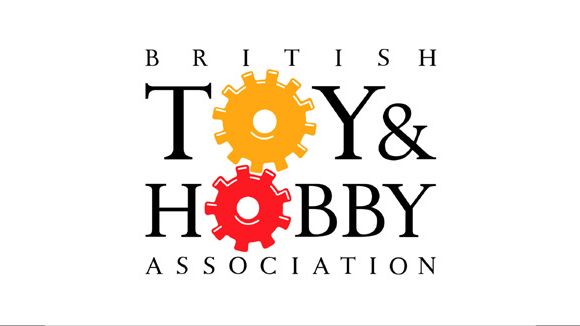
Press release -
The responsible toy industry calls for changes in the law to stop the sale of unsafe toys in the UK after finding 58% of toys selected for assessment from online marketplaces are illegal for sale in the UK
20 June 2019, London: The British Toy and Hobby Association (BTHA), and its members, today launch a white paper calling for action from the government to ensure unsafe toys are removed from the market after conducting a study across online platforms that found 58% of toys selected for assessment were non-compliant with the toy safety regulations in the UK and 22% of the total had serious safety issues.
The BTHA, which represents responsible toy makers across the UK, has been actively raising awareness that toys sold by third-party sellers on online marketplaces pose significant safety risks for the British public.
Natasha Crookes, Director of Communications for the BTHA, said: “The BTHA has been testing toys on online marketplaces and finding concerning levels of illegal and unsafe toys. We have been sharing the results with the platforms and regulators to call for change. We are concerned that unsafe and illegal products are not removed fast enough and identical products remain on sale. There are gaps in the UK regulations which allow the sellers and the marketplaces to not be held to account and for unsafe toys to continue to be available to UK consumers. We call on government to close that gap before a child is seriously injured or killed by an unsafe toy.”
Members of the BTHA are committed to making legally compliant, good quality toys for children to play with. Toys are already one of the most highly regulated product categories for sale in the UK, and across Europe, and regulations cover every element of the toy from the physical properties of the toy design to the chemical composition of the materials it is made from. Making toys to these demanding standards is a legal requirement every member of the BTHA is committed to undertake but it does come at a considerable expense and there are unscrupulous sellers who are happy to undercut prices by making substandard and illegal toys that are put into the hands of children.
These sellers have an avenue to market that was not available in years gone by. Online marketplaces are able to offer consumers a huge choice of products, many of them safe for sale. However, they also offer a global shop window to criminals selling illicit product and our laws need to be adapted to ensure accountability for products available in a 21st century online marketplace.
Members of the BTHA reported concerns to the Association that they believed there was an increasing number of unsafe toys reaching children in the UK through third-party sellers on online marketplaces. The BTHA has sample purchased 200 toys from the largest marketplaces and found 58% of those toys were illegal to sell in the UK as they failed to comply with safety requirements, such as having incorrect labels and no address to be able to trace the seller. Even more worryingly of the 200 toys 22% had serious safety failures which could cause serious injury or death to a child. Many of the toys have been sent for independent laboratory testing and the assessment results were verified by a panel of industry experts including expert representatives from suppliers, retailers, laboratories and trading standards. The BTHA has informed the various marketplaces, their Primary Authority Trading Standards Office (where they have one), the BTHA’s own Primary Authority Trading Standards Office and the Department of Business, Energy and Industrial Strategy’s Office for Product Safety and Standards (OPSS).
Some toys we highlighted were removed from sale, but not all - and identical products still remain on sale today. Since undertaking the testing of these toys, the BTHA has been trying to call for changes to be made as many of the sellers fall outside the jurisdiction of UK enforcement authorities. In addition, the online platforms do not have a clear role under the current UK product safety legislation, when it comes to the role they play in the supply chain, and what responsibility they have for checking the toys on their sites are safe or legal to sell in the UK. There are no clear legal requirements for the online marketplace platforms to check the safety of the products that are sold via their platform.
The BTHA is calling on government departments to take action to ensure only safe and legal toys are able to be sold in the UK. The actions we are calling for;
- 1. Immediately we call on the Department for Business Energy and Industrial Strategy, specifically the Office for Product Safety and Strategy to work with Trading Standards to ensure they have the resources to ensure the unsafe products we have identified are removed by the online platforms – from the sellers we have identified, but also from the many other sellers that continue to sell identical products.
- 2. We need Government to lead on defining and clarifying the role and expectations of online marketplaces within the scope of the existing regulations so they are accountable for checking the safety of the products they allow to be sold in the UK. Where necessary, this should be by way of legislative amendment.
- 3. In the long term, we call on the Department for Digital, Culture, Media and Sport and the Home Office to widen the definition of ‘online harms’ in the Online Harms White Paper which is currently under consultation. The definition of ‘online harms’ should be widened to include harm from unsafe products sold online to ensure children are protected from the behaviour of unscrupulous individuals and companies that hide behind the names of big brand platforms.
Current issues are often caused by vendors being based overseas, outside the jurisdiction of UK enforcement bodies. This means it is more difficult to trace companies to action a recall of unsafe product or to take responsibility for the products they have sold in the UK if a consumer needs to contact them. While we believe efforts should be made to ensure third-party sellers are held primarily accountable for the safety of the products they make available to UK consumers, we believe the online marketplaces must also be held accountable for the products sold on their platform and must help to remove them from the market where safety issues are identified – this should extend to the removal of identical lines being sold by other third-party sellers.
In addition, we call on the marketplaces to remove the illegal, counterfeited versions of our members' products we found during the investigation and to make it easier for companies to remove these products from the platforms. Counterfeits are illegal copies that are not made to the same standards as the original toys and often have associated safety risks. All members have been informed of the copies found and are taking action to have them removed.
Online marketplaces have disrupted the traditional retail market which has driven changes for consumers including convenience and choice. However, this cannot be at the detriment of safety and our laws need to be adapted to recognise that online marketplaces have established a new kind of international marketplace which requires more stringent regulatory oversight.
The full report is available on request or can be downloaded from the BTHA website - https://www.btha.co.uk/advocacy/
ENDS
Notes to Editors
For more information please contact;
Bastion
020 3841 7660
Becky Mullen
becky@bastion.co.uk
Jordan Tunnicliff
jordan@bastion.co.uk
The full report is available on request or from the BTHA website - https://www.btha.co.uk/advocacy/
Tips for consumers - Guidance from the BTHA on buying toys from online platforms;
- Do some research before you purchase. Search for the company/brand that makes the toy or character you want to buy and then include the company name when you search the online marketplace.
- Exercise caution when buying from third party-sellers on online marketplaces. All the toys which were non-compliant with the Toy Safety Directive in our study came from third-party sellers. They are often not held accountable for the safety of the products they sell in the same way as UK brands and bricks-and-mortar / direct online retailers and shops. (Third-party sellers are the sellers behind the main branded website). Do not assume that the platform has conducted any tests or checks on these lines.
- Look at reviews and be aware of who you are really buying from;
- Some reviews are false and generated by computers. Check all reviews particularly the not so good ones that may be more likely to be genuine.
- Do they have a track record of selling toys? – if not, be cautious.
- Do they have good reviews for the toys they have sold in the past? – if not, be cautious.
- Do they have a UK/EU address listed on the site? – if not, you should question your purchase; you may have difficulty contacting anybody if you have problems and having a UK/EU address is currently a legal requirement to sell toys in the UK. If the seller doesn’t know this, what else didn’t they know when making the toy you are about to buy?
- Do the pictures of the child in the marketing match the age warnings on the product?
- Be careful of going for the lowest price – if something looks too good to be true, it probably is. The price could be lower due to a number of factors;
- Counterfeit product - not made to the same standards as the original and will be illegal for sale in the UK and may also have the issues below.
- Cheaper material and design that is less durable or unsafe, e.g. high levels of restricted chemicals.
- Correct legal testing and assessments of products is very expensive and means genuinely safe products can cost more to manufacture.
- Buy from BTHA members (https://www.btha.co.uk/about-us/#members). Members sign up to an annual code of practice including commitments on toy safety and toys may carry the Lion Mark symbol to denote they are members. In our study no genuine member product failed any of our safety testing. A number of counterfeit products were identified and our members have reported those to the platforms for removal.
- To spot a counterfeit, look out for a product that is cheaper than normal, know who owns the brand and look for their name on the packaging, look for phrases like “compatible with (brand name)”, these are often made to look like the original but will not be genuine.
- Once you have made your purchase, immediately check your confirmation receipt. Check the source of the product is who you thought you had bought from. If you have bought from a third-party it will be listed on this receipt.
- When you receive your purchase, and importantly, before you give it to your child –
- Check it has an EU address.
- Check it has a CE mark.
- Check the age labelling is appropriate for the age of the child that it is for, as we found in our study small parts that could be a choking hazard for young children that were incorrectly labelled as safe for under 3 years.
- Check it has relevant warnings (e.g. toys not for babies should state “not suitable for under 3’s (or the equivalent symbol).
- Packaging generally – does it look genuine, is the print correct, are warnings and labels in the correct language, etc?
- Many illegal toys we purchased were delivered without any packaging or information at all which means there is no address to contact and no warnings that may be critical for safe play.
If any of these cause doubt or are missing, it is more likely that the toy is at risk of being illegal or unsafe, we would recommend you return it.
- When you give the toy to your child make sure you watch them open it and the toy inside is as expected, look out for small parts that were not meant to be there, that there is no access to stuffing materials, that batteries are not supplied loose in the product, that battery compartments are secure when using small batteries or button cells and be careful with small accessible magnets which can be swallowed.
- Some products we purchased were listed as toys but were actually for adults (collectible toys or ornaments) these items do not have to comply with toy standards, be careful and make sure the toy is appropriate for your child.
- Supervise your child during the initial play. Many of the illegal toys we found broke very quickly releasing dangerous small parts or gel contents.
- If you think the toy you have bought is unsafe or illegal write a review to warn other purchasers and talk to your local Trading Standards
About the BTHA The British Toy & Hobby Association was established in 1944 to represent the interests of British toy manufacturers and to raise standards of practice in the industry. Today it has around 150 members ranging from international toy giants to small family-run businesses that together account for more than 80% of the UK toy market. Membership of the British Toy & Hobby Association shows the member’s commitment to adhere to the BTHA Code of Practice under the umbrella of the Lion Mark which includes rules covering ethical and safe manufacture of toys, toy safety, a ban on counterfeit goods, an assurance to market responsibly, a commitment to improving sustainability and a desire to promote the value of all play through support of the Make Time 2 Play campaign. Our members are manufacturers committed to making good quality toys in a responsible way. The BTHA also administers the Toy Trust - the industry’s charity and organises Toy Fair – the UK’s largest dedicated toy trade show.


